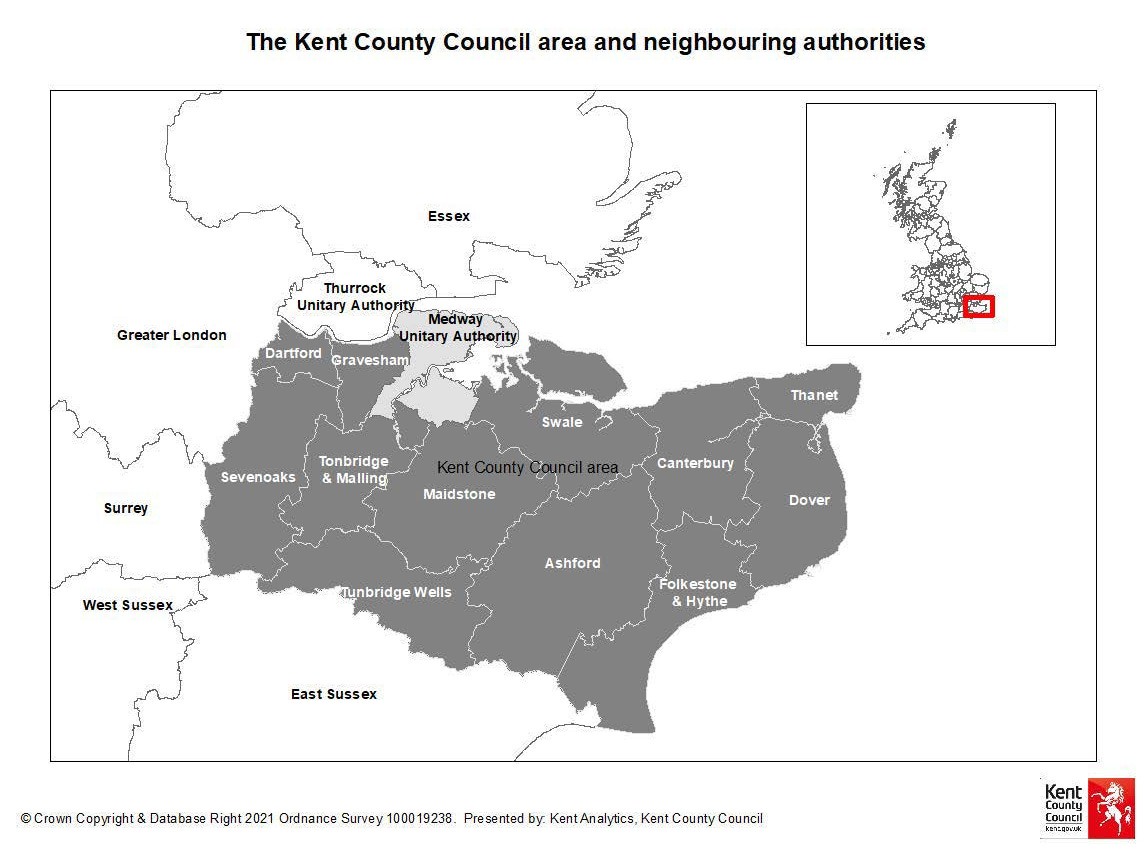New Generation of Councils and an Old Problem
What Kent councils want after missing out on devolution
If it takes a few cracked eggs to make an omelette, then it probably takes a barn of battery hens to re-organise 12 district councils into new streamlined unitary authorities.
The latest government deadline for councils to come up with interim plans to rejig the local government map of the county was passed this week - and will have landed on the minister of state’s desk amid a whole heap of other responses.
The fact that the submission has been signed by every council leader in Kent is pretty remarkable, even if the consensus is at some point likely to be breached.
It is important to note that we remain very much at the start of a process that will unwind over 18 months at least and may eventually dovetail with the devolution agenda being vigorously championed by the government.
The leader of Kent County council says that the authority was prepared to push ahead on some kind of devolution even if it was not supported by other councils.
Speaking at a meeting before the publication of the formal response to the government, he took the chance to critique the government about the plans and timetable - or a lack of one.
“We still require a clear and committed timescale for local government reorganisation and devolution, which we do not have at the moment.”
Converting existing councils into unitaries should at least be in line with devolution and should not be an “unspecified afterthought” and reorganisation should not be in some form that could threaten the viability of successor authorities.
KCC would be prepared to make submissions to the government on its own if that was necessary, he added:
“There is a growing body of evidence on that score [financial] and there will be more between now and November.”
Asked if the potential for some form of devolution might still be possible, he said that the initial announcement by the government in February, which left the authority out of the ‘priority’ programme, was “worse than we expected.”
“I thought we would have a chance but was alive to the possibility that we would not. What I was not anticipating is that we would be the only area in a big arc which runs all the way down from the Wash to the Isle of Wight…we will lose out if we are the only area in that category.”
He said that he and Medway council leader Vince Maple had had one meeting with a minister which had been encouraging and constructive, but the “ship had sailed” on the prospect of the government changing its mind on priority schemes.
It comes as opposition parties challenged the leader Cllr Roger Gough at the same meeting over a report that was said to say the most viable option was for the county to be split in into three new authorities.
Labour group leader Alastair Kirkby quizzed Mr Gough over the report he had seen suggesting that the government was being urged to consider just that.
Cllr Gough said in response told a cross-party meeting at County Hall that redrawing the local government map could, in some areas, be achieved with little disruption. However, there were many rural counties where it was “not obvious” that the savings anticipated could be made.
Analysis
The local government landscape is set to change profoundly under the government’s reforms. New unitary councils and different levels of devolution are, according to the government, needed after a period of stagnation over successive years in which residents have seen council tax rise to new inflation levels and at the same time, services diminished. The broad brush with which Kent councils have painted a large canvas shows the scale of the shake-up.
So, what are some of the key messages from council leaders?
Operation Brock: Councils want to see an end to the entire scheme but that seems unlikely. As a result, the submission to the government says any restructuring has to take into account the management of traffic when Operation Brock is triggered. “We would want reassurance that any new unitary structures – particularly those responsible for the major points of entry – have sufficient financial resources to manage these challenges.” What does this mean? Mitigating the impact of Op Brock is certainly a challenge but whether it is an opportunity is another matter.
2. Migration: The continuing influx of migrants crossing the Channel, which continues to pile pressure on the county council. Any new unitaries - according to the letter - must be “adequately supported as well as having sufficient financial resources to manage these challenges.”
3. Planning: Councils must have enough clout to resist developers’ plans for hundreds of homes and at the same time relax rules that could hold back numbers of new homes built each year. Or, as the councils put it: “We would want to ensure they are equipped with the capability to deal with the exceptional challenges we face and that our new local authorities are adequately supported as well as having sufficient financial resources to manage these challenges.”
There is no disguising that Kent is trying to strike a balance in its approach, insisting it is not all about money. However, it also makes plain in its submission there is a serious need to find ways of keeping costs down and that new unitary authorities are financially resilient and self-sufficient.
The answer to these questions will shape the new generation of unitary councils. Identifying the issues is only the start.


